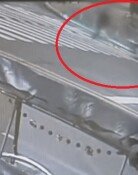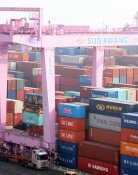[Editorial] N. Koreas Currency Revaluation
[Editorial] N. Koreas Currency Revaluation
Posted December. 03, 2009 00:34,
North Korea has carried out its first currency revaluation in 17 years. The exchange rate between old and new notes is 100 to 1 but the name of the currency, won, will remain the same. Initially, the North planned to allow each household to exchange up to 100,000 North Korean won for the new banknotes. Facing strong resistance from its people, however, it decided to increase the exchangeable amount to 150,000 won. Such opposition is understandable since the remaining assets of North Koreans could turn worthless. The Daily NK, an online news source on North Korea, quoted a source as saying, North Korea began exchanging banknotes yesterday, raising the agitation of the North Korean people over the currency revaluation that will result in a sudden fall in their wealth.
Since Pyongyang has not officially announced the revaluation, it is hard to understand why it conducted the measure. North Korea experts say one big reason is fighting inflation. Since the communist country introduced measures to improve economic management on July 1, 2002, black markets in North Korea have mushroomed, resulting in runaway inflation. For example, merchants began buying rice for 100 won, made popped rice, and sold it for 150 won. Accordingly, the volume of money circulated in the North Korean economy has grown and the prices of commodities have soared. The typical North Korean worker earns 3,000 won per month but one kilogram of rice is sold for more than 2,000 won. Since the North cannot reduce excess liquidity via interest rate policy, it apparently has forcefully taken over the excessive wealth of its people.
One analysis is that Pyongyang wants to drag underground money out of the black market and force traders and overseas workers, who have paid only loyalty funds to the regime and accumulated their own wealth, to cough up their private wealth. As foreign currencies earned by traders and overseas workers have been poured into the North Korean real estate market, the prices of high-end apartments in Pyongyang have more than doubled over the past one or two years.
Others say the revaluation aims to curb markets that have aggressively expanded over the past few years to reassert the North Korean governments control of the economy. The North has sought to rebuild its real economy through 150 and 100-day struggles. In line with this goal, Pyongyang apparently seeks to control the function of markets through the revaluation, though markets show the drawbacks of the Norths planned economy.
Regardless of intention, the strong resistance against the revaluation by the North Korean people might have put the communist regime in a fix. Indeed, North Koreans have begun recognizing the innate human nature of pursuing private wealth and a better life. Planned economies in the Soviet Union and Eastern European nations have failed. China abandoned the planned economy for the market economy. North Koreas planned economy is destined to fail unless it makes fundamental changes.







